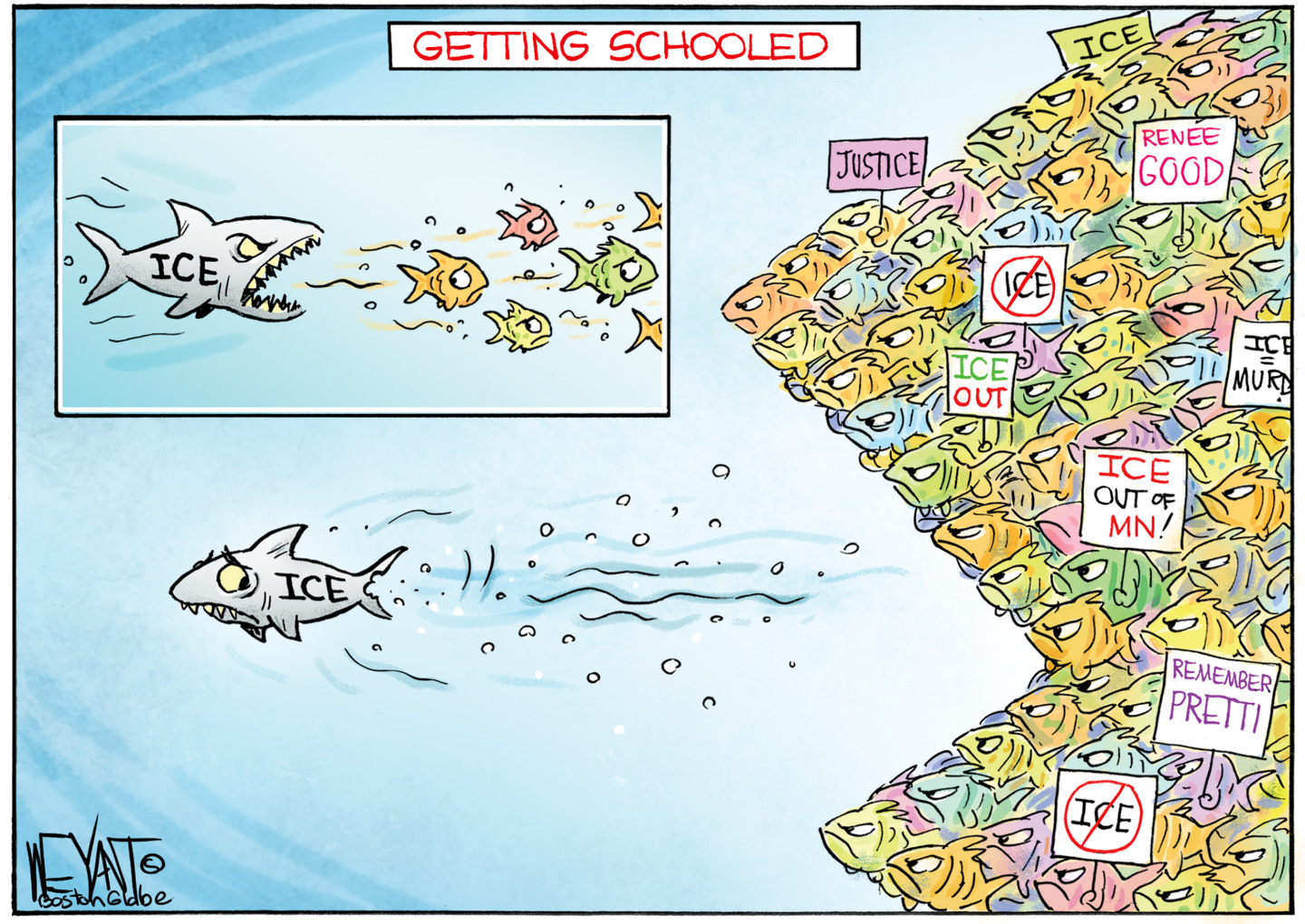Could Trumponomics actually work?
President Trump would probably lower taxes, raise wages, improve health care, and create jobs. This is why fascism can appeal to whole national populations.


What if Trumponomics actually works? What if he assumes the presidency, and offers economic policies that actually create jobs, raise wages, and improve livelihoods for the working class and everyday voters? If all that comes with Donald Trump's fascist instinct for bullying and authoritarianism, his desire to ban Muslims from traveling to the U.S. and his promise to forcibly deport 11 million undocumented immigrants, would a majority of Americans take that package deal?
Ian Welsh raised the specter of President Trump in a recent blog post. And while I think Welsh overstates things a bit, it's worth running through the case.
Look at Trumponomics as the standard conservative zeal for competition and profit, but with the white working class and its baser impulses as the focus of interest, rather than the elite. Then you beat up on everyone else: So you still cut taxes, but you also protect big entitlement programs, slap tariffs on foreigners, rail against big business, and kick out the immigrants.
The Week
Escape your echo chamber. Get the facts behind the news, plus analysis from multiple perspectives.

Sign up for The Week's Free Newsletters
From our morning news briefing to a weekly Good News Newsletter, get the best of The Week delivered directly to your inbox.
From our morning news briefing to a weekly Good News Newsletter, get the best of The Week delivered directly to your inbox.
Consider Trump's tax proposal. He'd collapse our current seven tax brackets — with rates ranging from 10 to 39.6 percent — down to three brackets at 10, 20, and 25 percent. They'd kick in at $29,000, $54,000, and $154,000 respectively. (Make less than $29,000, and you'd pay no income tax.) He'd cut capital gains taxes a little and corporate taxes a lot, and he'd massively increase the standard deduction. The Tax Policy Center (TPC) added it all up and found that, while the bulk of Trump's tax cuts would go to the rich (Table 6), they'd also help the bottom three-fifths of Americans much more than, say, Marco Rubio's tax cuts (Table 6). Since the lower fifths are far more likely to spend the money from tax cuts than the wealthy, that would certainly boost demand.
By 2026 Trump's tax plan would be adding a trillion to the debt annually, and cutting government spending an equivalent amount to reduce those deficits would certainly undo the demand boost. But so far the cuts Trump has proposed — axe the Environmental Protection Agency and the Education Department, and cut down on waste, fraud, and abuse — don't come anywhere close to bringing spending in line with revenue.
And I think it's fair to say Trump probably doesn't actually care in the slightest about making it add up.
Next is Trump's positions on trade, which Welsh focuses a lot of his arguments on. The basic problem we face is that a lot of imports coming into America from China and elsewhere are cheap, so we import more than we export, and that creates a large trade deficit. That deficit drains domestic demand, using it to generate jobs overseas rather than here at home. Trump wants to start slapping tariffs on those imports to make them more expensive within our markets, so more Americans will buy more stuff from here at home.
A free daily email with the biggest news stories of the day – and the best features from TheWeek.com
If you look at the history of how the trade deficit developed, it's pretty clear that this is mainly a story about currency flows and manipulation, as opposed to the lower costs of doing business in developing countries that Welsh points to. That said, tariffs would drive American demand away from foreign imports, and effectively corral demand back within our borders, so it creates more jobs here in America.
As for immigration, even though there's a plausible story you can tell where low-skill immigrants drive down wages in the specific markets that employ poorer and working class natives, any solid evidence for it is hard to find and hotly contested. That said, all other things being equal, deporting 11 million people and building a wall at the border will tighten the supply of labor, which certainly isn't going to hurt native wages. This is why it's so important for people advocating an open and humane border policy to go all in on boosting wages and employment by other routes.
Then there's the other stuff Trump hasn't talked as much about yet, but could. I don't see any reason to think he wouldn't happily deficit spend by hundreds of billions on infrastructure projects to employ more Americans directly, a la Bernie Sanders. And while Trump seems to make up health care policy on the fly, does anyone doubt he'd happily chuck conservative orthodoxy over the side and ramp up government spending to pay for people's health care if he thought it would improve his popularity?
Now, Trump would still face all the structural hurdles of the American policymaking process, opposition from Congress and Federal Reserve officials, and more. But, again, look at this man's moral instincts, and consider that he'd have the entire executive branch, and its capacity for prosecution and intimidation, at his disposal. As Welsh asked: "What do you think will happen to lawmakers who oppose the great Trump when they go back to their districts and encounter Trump supporters?"
The general assumption is that Trump doesn't care about policy: But if you poke through his bluster, what you find is a macroeconomic mechanism that — while very crude and jury-rigged — could conceivably make a lot of Americans better off economically. President Trump would probably lower taxes, raise wages, improve health care, and create jobs.
This is why fascism can appeal to whole national populations, and why it tends to pop up in countries after they've endured big economic collapses. It's not held back by the self-satisfied orthodoxies of cosmopolitan elites, which tend to default to more inequality and exploitation of workers. It's willing to embrace macroeconomic policies that create lots of jobs, raise wages, and improve economic well-being for average workers. It just combines all that with racism, authoritarianism, military conquest, and the occasional genocide. Mussolini made the trains run on time, as the old saw goes.
Giving people jobs and decent livelihoods while appealing to their darkest impulses is a pretty winning combination. And you're not going to be able to fight fascism's appeal unless you match it on the jobs and livelihoods front.
Jeff Spross was the economics and business correspondent at TheWeek.com. He was previously a reporter at ThinkProgress.
-
 Bad Bunny, Lamar, K-pop make Grammy history
Bad Bunny, Lamar, K-pop make Grammy historySpeed Read The Puerto Rican artist will perform at the Super Bowl this weekend
-
 Political cartoons for February 2
Political cartoons for February 2Cartoons Monday’s political cartoons include ICE getting schooled, AI in control, and more
-
 Democrats win House race, flip Texas Senate seat
Democrats win House race, flip Texas Senate seatSpeed Read Christian Menefee won the special election for an open House seat in the Houston area
-
 The billionaires’ wealth tax: a catastrophe for California?
The billionaires’ wealth tax: a catastrophe for California?Talking Point Peter Thiel and Larry Page preparing to change state residency
-
 Bari Weiss’ ‘60 Minutes’ scandal is about more than one report
Bari Weiss’ ‘60 Minutes’ scandal is about more than one reportIN THE SPOTLIGHT By blocking an approved segment on a controversial prison holding US deportees in El Salvador, the editor-in-chief of CBS News has become the main story
-
 Has Zohran Mamdani shown the Democrats how to win again?
Has Zohran Mamdani shown the Democrats how to win again?Today’s Big Question New York City mayoral election touted as victory for left-wing populists but moderate centrist wins elsewhere present more complex path for Democratic Party
-
 Millions turn out for anti-Trump ‘No Kings’ rallies
Millions turn out for anti-Trump ‘No Kings’ ralliesSpeed Read An estimated 7 million people participated, 2 million more than at the first ‘No Kings’ protest in June
-
 Ghislaine Maxwell: angling for a Trump pardon
Ghislaine Maxwell: angling for a Trump pardonTalking Point Convicted sex trafficker's testimony could shed new light on president's links to Jeffrey Epstein
-
 The last words and final moments of 40 presidents
The last words and final moments of 40 presidentsThe Explainer Some are eloquent quotes worthy of the holders of the highest office in the nation, and others... aren't
-
 The JFK files: the truth at last?
The JFK files: the truth at last?In The Spotlight More than 64,000 previously classified documents relating the 1963 assassination of John F. Kennedy have been released by the Trump administration
-
 'Seriously, not literally': how should the world take Donald Trump?
'Seriously, not literally': how should the world take Donald Trump?Today's big question White House rhetoric and reality look likely to become increasingly blurred
